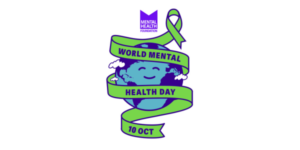
Prominent Harvard Business School professor and social scientist Arthur C Brooks has conducted extensive research on what is likely to cause higher happiness levels in later life. His findings provide tips and suggestions to help us prepare for a happier second half and be more likely to enjoy it.
This blog shares some of the highlights from happiness research specifically as they apply to ambitious professionals who may be asking themselves if they are still happy and, if not, what they can do about it.
1. What used to make you happy might not anymore
When we start out in our careers and set up our lives, we may make certain decisions or head in particular directions that suit us and make us happy at the time. Our needs, abilities and preferences change over time, and something that might have excited us in our 20s might feel less satisfying in our 40s. That is normal and should be expected. We should be comfortable with that and see flexing to satisfy those evolving preferences as healthy and normal.
2. Avoid the four false idols: money, power, pleasure and fame.
Chasing, and even achieving, in these areas is likened to substance addition. There is a dopamine high, but they will leave you unhappy in the long run. The difference is that they are not only socially acceptable but often socially promoted and so can be easy to fall into without realising their impact on our lives.
3. Instead, focus on the four pillars of our ‘happiness portfolio’
These are family, friends, work and faith. He found that the happiest people had deep family ties and strong friendships with a true sense of self and what is important to them. They also have work which serves others as well as themselves. By finding habits and routines that encourage focus in these four areas, people are more likely to experience longer-term happiness.
4. Happiness is a discipline.
Being happy in a modern world filled with distractions and pressures can be difficult, so sticking to these principles is not easy. We can, though, view happiness discipline similarly to an exercise regime. Something to stick to and create ways to keep us focused on it. By understanding what drives happiness in us as an individual, we can take action when we feel it slipping away to help us stay on course.
5. Embrace ‘happiness triggers’
Certain actions and activities have been found to be more likely to boost happiness. Some suggestions include acknowledging and getting a grip on unhelpful thoughts, spending money on experiences and not ‘stuff’, always be learning and willing to learn, and getting out in nature regularly – and taking the time to appreciate it when you do.
We can’t guarantee that joining Two IP will immediately make you permanently happy, but our flexible approach allows you to control your work and daily routine so you can have the time to do the activities that do make you happy. You can find out about how we work here.





